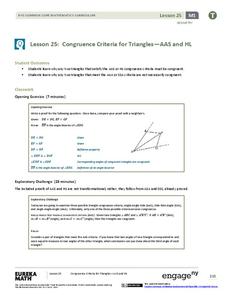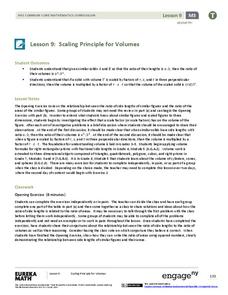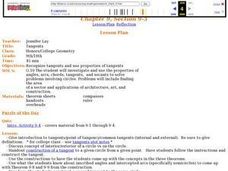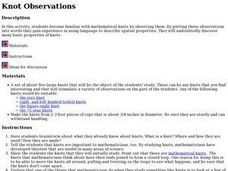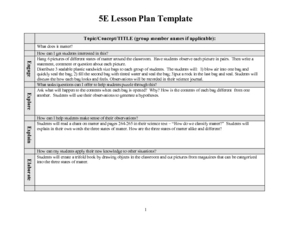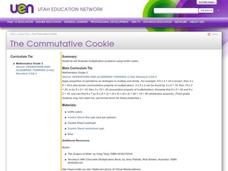EngageNY
A Surprising Boost from Geometry
Working with imaginary numbers — this is where it gets complex! After exploring the graph of complex numbers, learners simplify them using addition, subtraction, and multiplication.
Federal Reserve Bank
Income Taxes
Most adults dread April 15 — tax day! Tax preparation can be intimidating even for adults. Build confidence by leading individuals through the process and then give them a scenario to practice. The exercise uses tax vocabulary to give...
EngageNY
Congruence Criteria for Triangles—AAS and HL
How can you prove it? Guide classes through an exploration of two possible triangle congruence criteria: AAS and HL. Learners connect this criteria to those previous learned and also explore criteria that does not work. The lesson...
EngageNY
Making Scale Drawings Using the Ratio Method
Is that drawn to scale? Capture the artistry of geometry using the ratio method to create dilations. Mathematicians use a center and ratio to create a scaled drawing. They then use a ruler and protractor to verify measurements.
EngageNY
Scaling Principle for Volumes
Review the principles of scaling areas and draws a comparison to scaling volumes with a third dimensional measurement. The exercises continue with what happens to the volume if the dimensions are not multiplied by the same...
EngageNY
Proving Trigonometric Identities
Young mathematicians first learn the basics of proving trigonometric identities. They then practice this skill on several examples.
Las Cumbres Observatory
The Cosmic Distance Ladder: Parallax
Scientists don't have a ruler long enough to measure to the stars, so they rely on math. Scholars learn to calculate the distance from Earth to a star using the parallax method. They use angle measures from different perspectives to...
Willow Tree
Factoring Polynomials
Young mathematicians discover trees organize more than just families — they help factor, too. The lesson begins with factor trees and develops slowly to factoring by grouping and special patterns.
Mathematics Assessment Project
Inscribing and Circumscribing Right Triangles
High schoolers attempt an assessment task requiring them to find the radii of inscribed and circumscribed circles of a right triangle with given dimensions. They then evaluate provided sample responses to consider how to improve...
Willow Tree
Formulas
Help learners understand the benefits of rearranging a formula. Scholars practice rearranging formulas for specific variables. They also analyze formulas to understand one variable's effect on the other.
West Contra Costa Unified School District
Introduction to Trigonometric Functions
Scholars first learn the definitions of the sine ratio, the cosine ratio, and the tangent ratio. After mastering these definitions, they use the new information to solve triangles.
Alabama Learning Exchange
Can You Solve the Mystery of the Variable?
Solving a murder is like isolating a variable. Using a video on a murder mystery, the narrator introduces the idea of solving a literal equation for one variable. After solving several equations, the class comes up with a set of...
Howard County Schools
Factoring Trinomials Using Tiles
What's the opposite of multiplying binomials? Learners apply their previous knowledge of multiplying binomials using algebra tiles to factor trinomials. The lesson introduces factoring as a process that uses algebra tiles to...
Curated OER
Properties of Logarithms
Eleventh graders investigate logarithms. For this Algebra II lesson, 11th graders explore the properties of logarithms that are used to simplify expression and solve equations. Students confirm their conjectures regarding the...
Curated OER
Math: Tangents
Young scholars discover how to recognize tangents and how to use their properties. They investigate and use the properties of angles, arcs, chords, tangents, and secants. Students use two tangents and the properties of similar...
Curated OER
Math: Equal Area Triangles
Learners examine a math worksheet and determine how to divide a single triangle into four of equal area. Using geometric principles, they sketch two additional ways to divide into into four equal triangles. To conclude, students...
Curated OER
Math: Knot Observations
Students discover the importance of knots to mathematicians in developing scientific theories. In small groups, they examine knots and make obeservations about them. Students discuss the ways to distinguish knots and make lists of...
Curated OER
Math: Arcs and Chords
Students draw diagrams demonstrating how it is possible to two central angles to be congruent and their minor arcs are not congruent. In groups, they illustrate theorems with their constructed circles, create diameters of circles that...
Curated OER
Math: A Geometric Neighborhood
Learners, as a final project, draw a picture of their ideal neighborhood on a sunny day. In addition to the sun, their drawings include homes, trees, streets, and selected objects. Each object in their drawing has a written description...
Curated OER
What Does It Matter?
Students match definitions with vocabulary words and learn basic facts about matter. Then, they see how to determine the physical characteristics of matter. They determine the mass, volume, and density of objects using appropriate tools...
Curated OER
The Difference of Two Squares
Learners practice the use of number properties through exploring the difference of two squares, creating an array model for multiplication, and work with decimal numbers. In groups, students explore patterns in an array and determine...
Curated OER
As the Bird Flies
Students investigate the properties of lines and congruent triangle theorems as well as apply geometric properties and relationships to real-world mathematical problems. Given two different scenarios, they examine maps that have been...
Curated OER
Multiplying 2-Digit Numbers
In this multiplying 2-digit numbers worksheet, students solve and complete 4 different problems. First, they multiply by the right-bottom digit and then the left-bottom digit. Finally, they add all numbers together and write the answer.
Curated OER
The Commutative Cookie
Third graders investigate the commutative properties of multiplication and focus upon the setting of cubes in the correct patterns to solve problems. They differentiate between numbers that have multiple factors and prime numbers....




